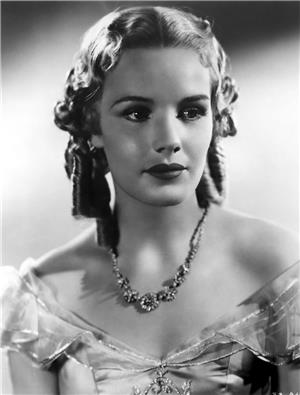On April 14, 1931, future film star Frances Farmer (1913-1970) wins a first-place prize of $100 in a contest sponsored by The Scholastic, a national magazine for high school students, with an essay titled "God Dies." The award generates considerable controversy, especially from local ministers, and brings Farmer -- then a senior at West Seattle High School -- her first taste of national notoriety.
In the essay, Farmer described God as "a man on a throne in heaven," usually "easy to forget" but sometimes "useful to remember; especially when I lost things that were important." One day, she misplaced a new red hat, and prayed to God to help her find it. God was "a super-father that couldn’t spank me. But if I wanted a thing badly enough, he arranged it." Then she began to wonder: "…if God loved all his children equally, why did he bother about my red hat and let other people lose their fathers and mothers for always?"
Reaction to the award focused less on the essay itself than on its provocative title. Newspapers around the country carried headlines such as "Seattle Girl Denies God and Wins Prize." In Seattle, several churches held special meetings to discuss the "rampant atheism" in the public schools. Both Farmer and her creative writing teacher, Belle McKenzie, were widely denounced.
Some years later, at the peak of her career as an actor, Farmer said the reaction to the essay had been a turning point in her life. "It was pretty sad," she said, "because for the first time I found how stupid people could be. It sort of made me feel alone in the world. The more people pointed at me in scorn the more stubborn I got and when they began calling me the Bad Girl of West Seattle High, I tried to live up to it" (Collier’s).
Once hailed as "the next Greta Garbo," Farmer’s career was derailed in the 1940s by a series of commitments to mental institutions. She was eventually judged legally insane and confined to Western State Hospital in Steilacoom, Washington, for more than five years. After her release, in 1950, she settled first in Eureka, California, and then in Indianapolis, Indiana, where she died in relative obscurity in 1970.

